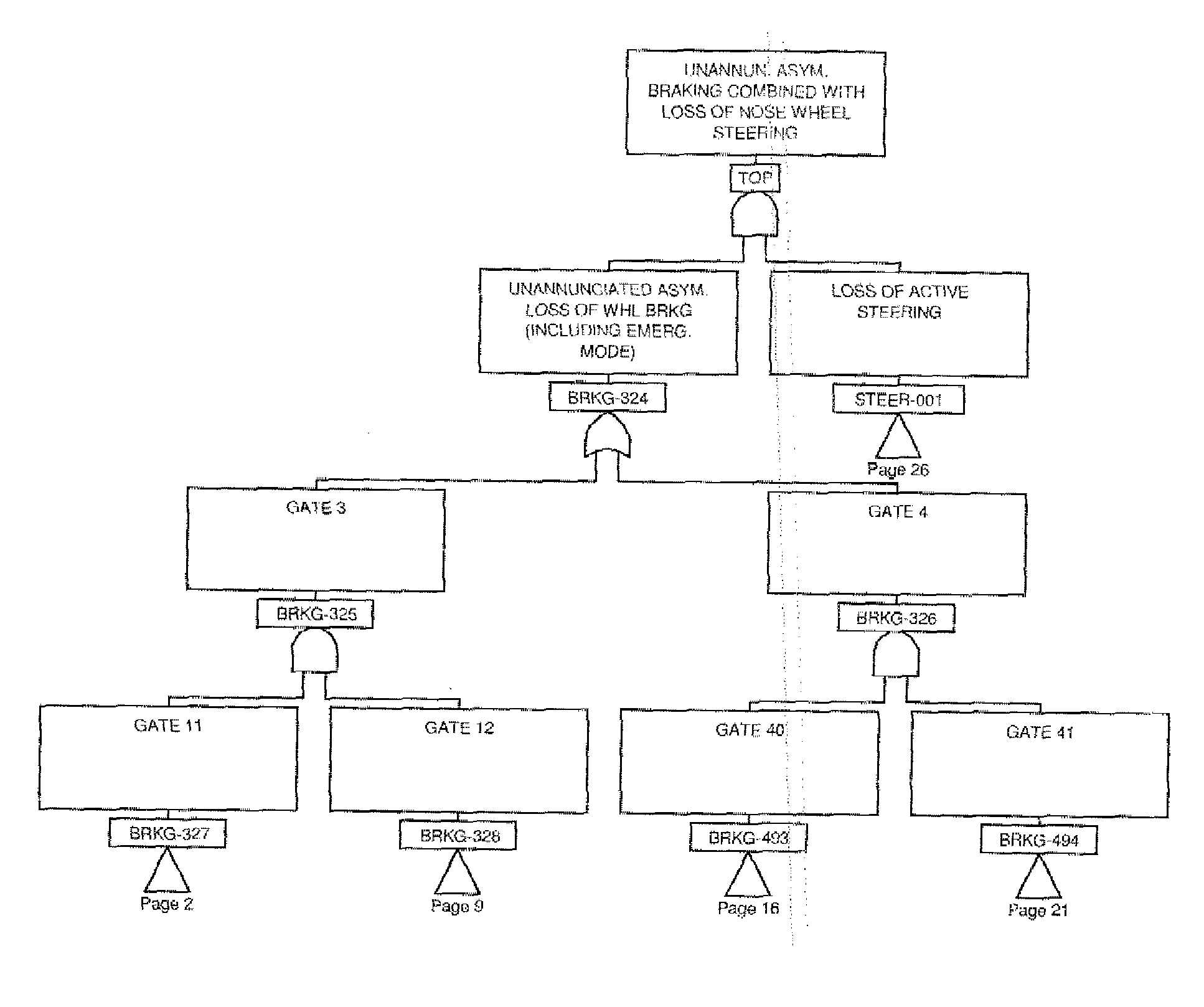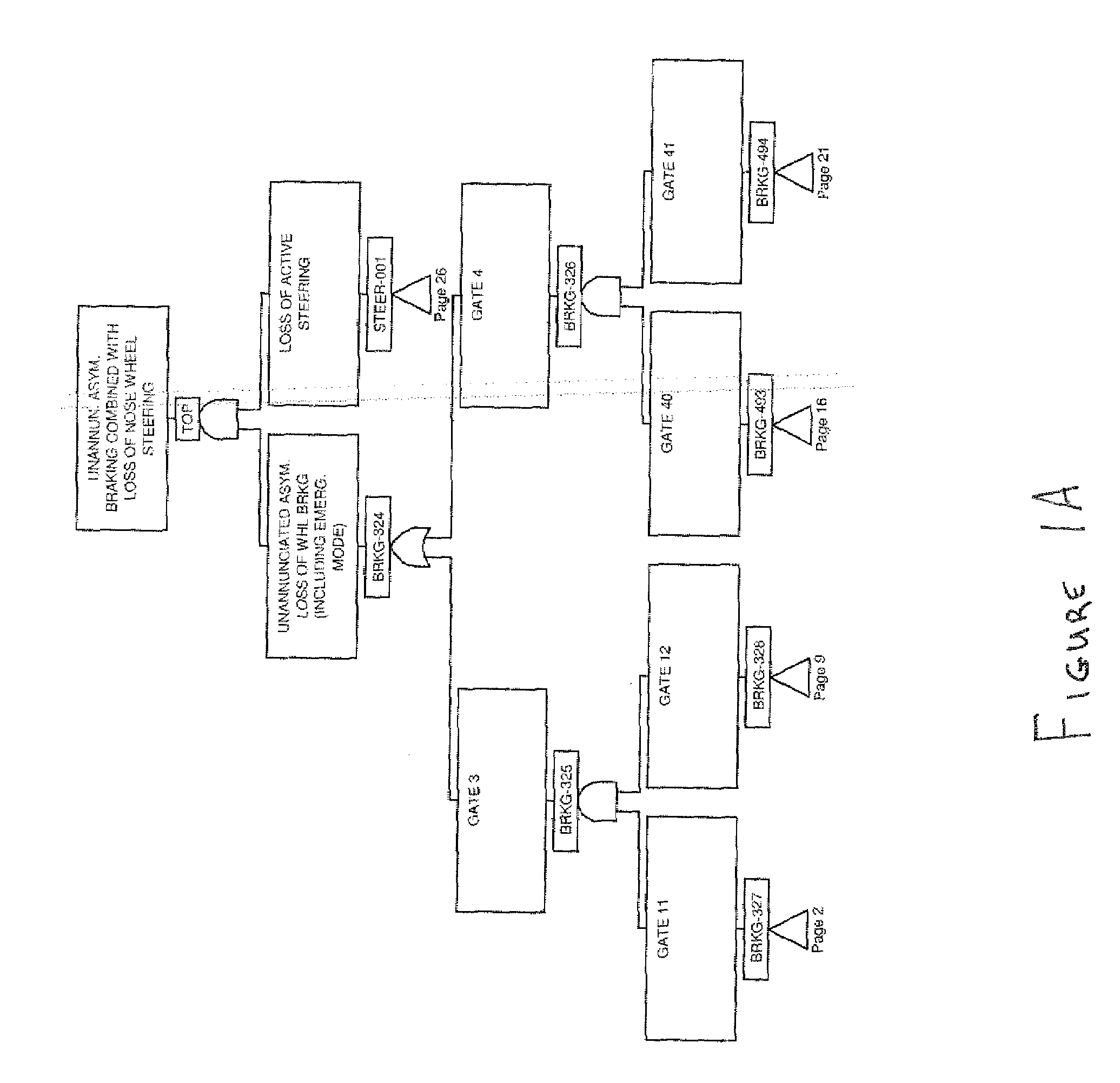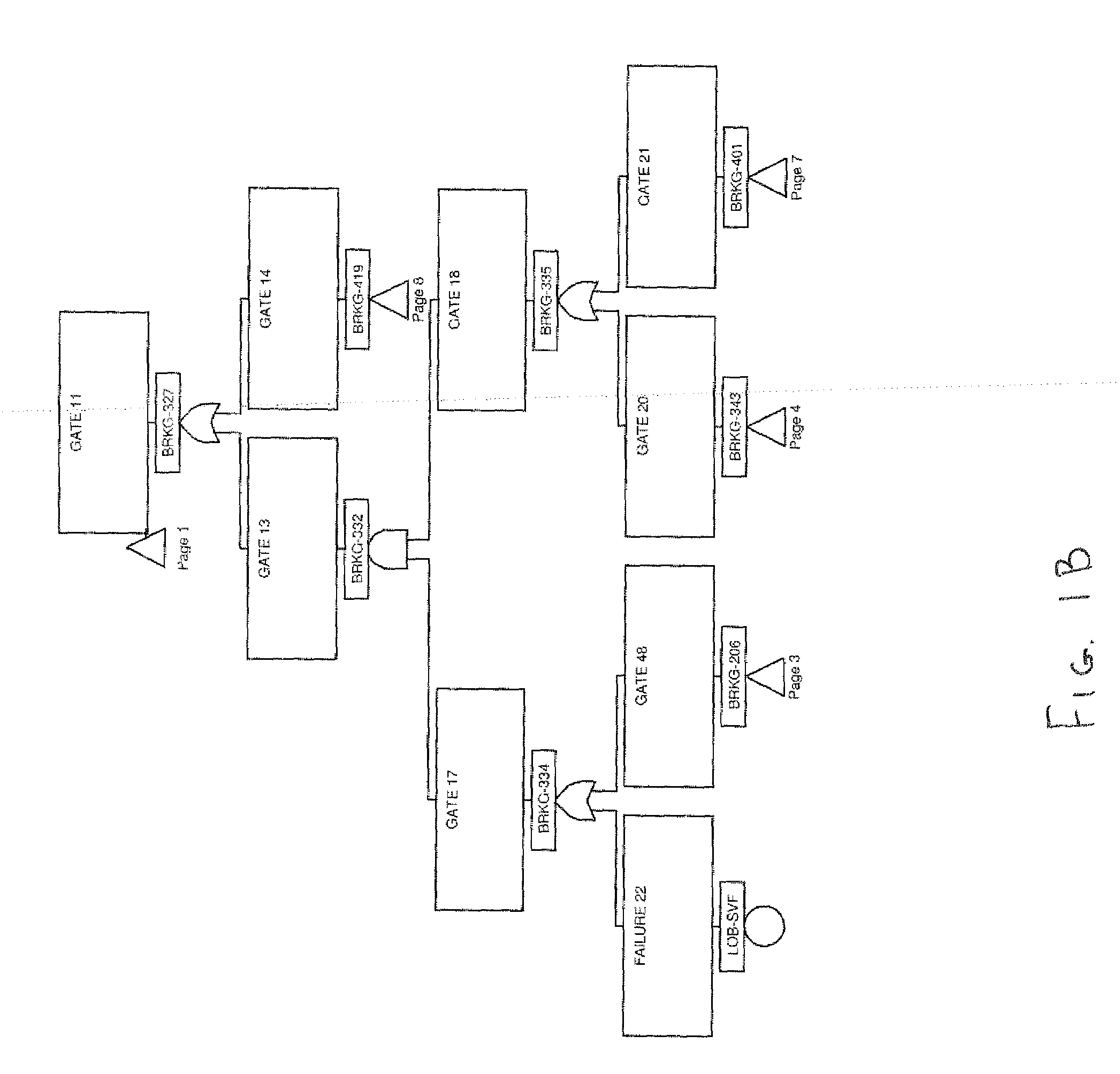Fault tree map generation
- Summary
- Abstract
- Description
- Claims
- Application Information
AI Technical Summary
Benefits of technology
Problems solved by technology
Method used
Image
Examples
Embodiment Construction
[0058]FIGS. 1A-1AF show an exemplary illustrative non-limiting conventional fault tree of the type that is used in many industries and applications to conduct fault and reliability analysis. The example fault tree shown in these Figures shows faults and system behavior for an example aircraft braking condition. However, any type of aircraft or other system, including but not limited to other vehicular or transportation systems, medical systems, first responder emergency systems, communications systems, power grid systems including nuclear reactors, or any other complex or other system can be analyzed using a fault tree in a similar fashion as is known to those skilled in the art.
[0059]Those skilled in the art will recognize the features of the conventional fault tree shown in FIGS. 1A-1AE. For example, they will recognize the “top event” shown in FIG. 1A (braking loss combined with loss of nosewheel steering) that represents a potentially aircraft failure mode, as well as the failur...
PUM
 Login to View More
Login to View More Abstract
Description
Claims
Application Information
 Login to View More
Login to View More - R&D
- Intellectual Property
- Life Sciences
- Materials
- Tech Scout
- Unparalleled Data Quality
- Higher Quality Content
- 60% Fewer Hallucinations
Browse by: Latest US Patents, China's latest patents, Technical Efficacy Thesaurus, Application Domain, Technology Topic, Popular Technical Reports.
© 2025 PatSnap. All rights reserved.Legal|Privacy policy|Modern Slavery Act Transparency Statement|Sitemap|About US| Contact US: help@patsnap.com



